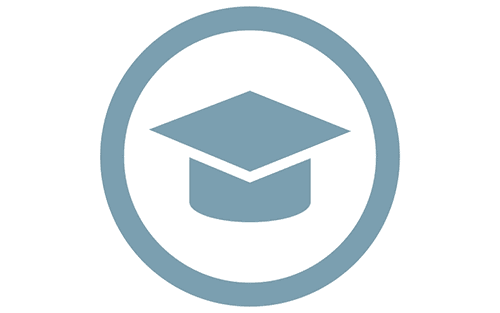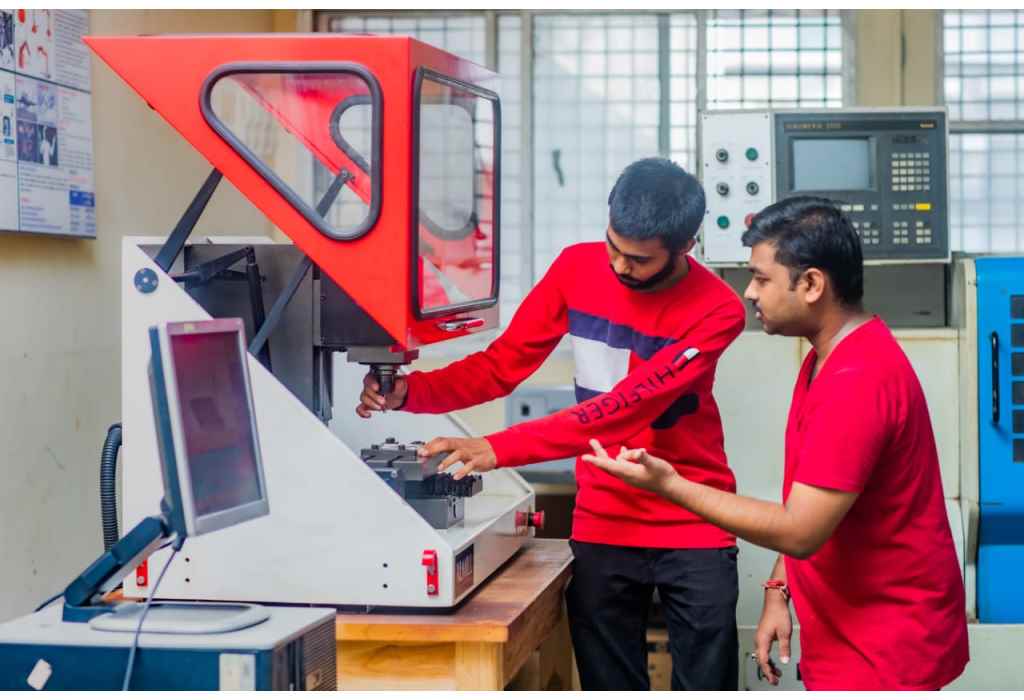The Department of Mechanical Engineering was established in the year 1996 and provides an outstanding academic environment complemented by excellence in teaching. The Department offers 4 years undergraduate course (B.E.).
Vision
“Strive to thrive for quality manpower who will contribute towards technological development in the field of mechanical engineering and socio-economy”.
Mission
- To impart fundamental knowledge of engineering and its practical application by developing state-of-the-art facilities for the Department of Mechanical Engineering.
- To build Industry – Institute linkage for quality improvement by promoting participation of industries in the area of consultancy.
- To encourage the students towards higher education through research and development activities.
Program Specific Outcomes (PSOs)
- PSO-1 The students will have a profound foundation in mathematical, scientific and engineering domains necessary to achieve professional and productive excellence in technical and non-technical problem solving and analyzing engineering problems.
- PSO-2 The students will have the ability to synthesize the engineering data and apply scientific principles for applications involving mechanical engineering using high-end soft tools.
- PSO-3 The students will have the ability to pursue advanced careers and discharge his/her duties entrusted with a high degree of commitment to address professional and ethical responsibilities, including a respect for diversity and provide cost-effective engineering solutions.
Program Educational Objectives (PEOs)
- PEO-1 To empower the students with the knowledge of Basic Engineering Science and Technical Skills
- PEO-2 To develop the skill of methodological approach for decision making and designing.
- PEO-3 To prepare students for different fields like industries, Research and Development, teaching, etc. through which society will be served.
- PEO-4 To create awareness towards social, environmental, and energy-related issues and emphasize on effective communication skills and professionalism.
Program Outcomes (POs)
-
1. Engineering Knowledge: Apply the knowledge of mathematics, science, engineering fundamentals, and an engineering specialization to the solution of complex engineering problems.
-
2. Problem Analysis: Identify, formulate, research literature, and analyze complex engineering problems reaching substantiated conclusions using first principles of mathematics, natural sciences, and engineering sciences.
-
3. Design/development of Solutions: Design solutions for complex engineering problems and design system components or processes that meet t h e specified needs with appropriate consideration for public health and safety, and cultural, societal, and environmental considerations.
-
4. Conduct Investigations of Complex Problems: Use research-based knowledge and research methods including design of experiments, analysis and interpretation of data, and synthesis of the information to provide valid conclusions.
-
5. Modern Tool usage: Create, select, and apply appropriate techniques, resources, and modern engineering and IT tools including prediction and modeling to complex engineering activities with an understanding of the limitations.
-
6. The Engineer and Society: Apply to reason informed by the contextual knowledge to assess societal, health, safety, legal and cultural issues and the consequent responsibilities relevant to the professional engineering practice.
-
7. Environment and Sustainability: Understand the impact of the professional engineering solutions in societal and environmental contexts, and demonstrate the knowledge of, and need for sustainable development.
-
8. Ethics : Apply ethical principles and commit to professional ethics and responsibilities and norms of the engineering practice.
-
9. Individual and Team Work : Function effectively as an individual, and as a member or leader in diverse teams, and in multidisciplinary settings.
-
10. Communication: Communicate effectively on complex engineering activities with the engineering community and with society at large, such as being able to comprehend and write effective reports and design documentation, make effective presentations and give and receive clear instructions.
-
11. Project Management and Finance: Demonstrate knowledge and understanding of the engineering and management principles and apply these to one’s own work, as a member and leader in a team, to manage projects and in multidisciplinary environments.
- 12. Life-long Learning: Recognize the need for, and have the preparation and ability to engage in independent and life-long learning in the broadest context of technological change

